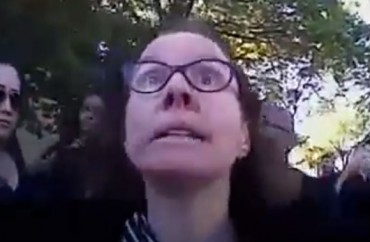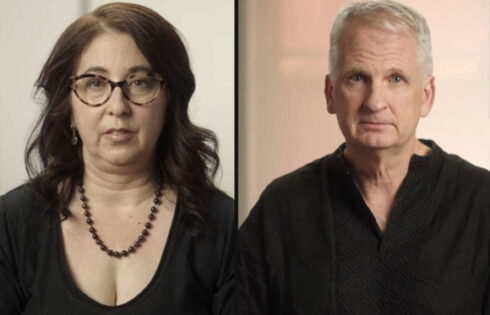
The sordid saga of former Mizzou professor Melissa Click may have affected her previous employer more than expected.
Click’s caught-on-camera antics during a racial protest ultimately led to her firing, and the story remained in the news for months.
A recent study by researchers at Harvard Business School looked at the media effect on university scandals, and concludes that the longer a scandal remains in the news, the greater decline in enrollment a school will suffer.
Examining various ignominies at the top 100 institutions from 2001 to 2013, the study authors found “[s]candals with a high level of media coverage significantly reduce applications. For example, a scandal covered in a long-form news article leads to a ten percent drop in applications the following year.
“This is roughly the same as the impact on applications of dropping ten spots in the U.S. News and World Report college rankings.”
Projected enrollment this year at Mizzou is down some 2,600 students, meaning $36.3 million less in tuition monies coming in.
MORE: Melissa Click fired by University of Missouri for harming ‘rights of others’
Though the Harvard study defines “scandals” as “sexual assaults, murders, cheating, and hazing incidents,” Michael Q. McShane at the Show-Me Institute notes “it’s hard not to imagine large scale protests of alleged racism and professors assaulting students as functioning similarly.”
From the study:
[…] in the year following a scandal, colleges receive 2 percent fewer applications, but this is not statistically different than zero. However, the next few columns consider scandals with relatively larger amounts of media coverage. A scandal that receives at least one mention in The New York Times receives almost 5 percent fewer applications. A scandal generating more than five New York Times pieces in the month following breaking news leads to an 8.8 percent drop in applications. Long-form coverage of a scandal leads to 10.4 percent fewer applications.
Overall, the results suggest that the impact of a scandal depends on the amount of media coverage the scandal receives.
A check of the NY Times’ archive shows four articles about the Mizzou race protests (including Melissa Click) from last November, and another five pertaining to Click’s subsequent punishment a couple months after (six if you count an article in early January mentioning Missouri lawmaker pressure to fire Click).
With a total of 9-10 Times mentions and the parameters of the study, the situation at Mizzou should come as very little surprise.
Read the full study and Show-Me Institute article.
h/t to TypingPrimate
MORE: Firing Melissa Click gets Mizzou censured by professor group
MORE: Mizzou’s Click charged with assault for November protest scuffle
Like The College Fix on Facebook / Follow us on Twitter
IMAGE: YouTube






Please join the conversation about our stories on Facebook, Twitter, Instagram, Reddit, MeWe, Rumble, Gab, Minds and Gettr.